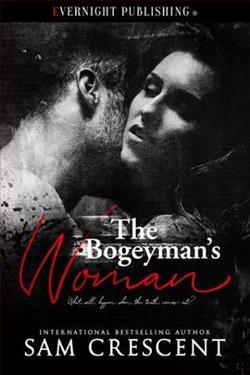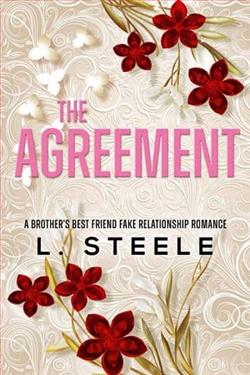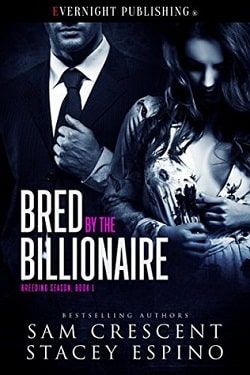Page 22 of Going Home in the Dark
“We have? When? When have we seen someone not just in a coma, someone in suspended animation?”
“Back in the day,” Bobby said. “Rebecca’s right. I can almost remember. There wasn’t just one. There were eight or even ten of them lying on their backs, lined across the floor. Wasn’t it in a basement?”
“A church basement,” Rebecca remembered.
Spencer blanched. “Tell me it wasn’t the Church of the Sacred Erogenous Revelation?”
“It wasn’t,” Bobby said. “It was ...”
Rebecca said, “At the corner of Cunningham Avenue and Winkler Street.”
“Saint Mark’s,” said Spencer. His eyes widened as if he were waking from a long sleep. “The Lutheran church. Ten bodies side by side on the floor. But what were we doing there? None of us is a Lutheran.”
“When Ernie was twelve,” Rebecca said, “he started going to services at Saint Mark’s just to irritate his mother. He was still going when we were amigos.”
“He was in the church choir,” Bobby recalled. “It embarrassed the hell out of Britta that he was in the choir.”
They stood there in the hospital parking lot, gaping at one another, waiting for the moth-eaten wool of their memories to be fully repaired. No additional details returned to them. They still had more holes than fabric.
“Britta,” said Spencer. “That’s another problem. She might be the executor of Ernie’s estate, and if she isn’t, she might take it upon herself to act as if she is. She’s likely to go there tomorrow if she isn’t there already.”
“Whoever’s the executor,” Bobby said, “the estate can’t be settled quickly, especially when Ernie has disappeared. Hiding him there is still less risky than anywhere else. We can tuck him away so no one is likely to find him.”
Rebecca considered the hospital’s architecture, as sleek and unconventional as that of a richly endowed museum housing the most tedious of modern art. The massive Keppelwhite Institute rose behind it, ominous in scale and style, as though the architect must have intended to create a structure so intimidating it would inspirein the locals a superstitious aversion that would discourage them from wondering too much about what happened inside its walls.
A hundred and eighty degrees from those buildings, on the far side of the street, lay a residential neighborhood pretty much like the others in Maple Grove. The Victorian houses, with a few Georgian residences, were well maintained. The homes were shaded by oaks and willows, by sycamores that would clothe themselves in bright yellow when autumn came; the trees were flourishing and perfectly shaped, as if a third of those with jobs in this town must be employed as arborists.
Rebecca realized that Maple Grove was more remarkable than just picture-postcard perfect. The place was unreal. In fact, though the town had been unusually attractive when the amigos had been growing up here, it had matured until it resembled the ideal environment of a Disney theme park. If you paused to consider the unlikelihood of this perfection, the unblemished prettiness felt, in its way, as creepy as the institute. It was as if the Keppelwhites had chosen this unlikely location to establish their project not just because of the cheap land, low crime, and clean air, but also because the place was a locus of some strange regenerative power.
“You feel it?” Spencer asked.
The breeze carried the enticing aroma of steaks barbecuing on a charcoal-fired grill.
“This place ... It’s aware,” said Spencer.
“It’s something,” she agreed, though she could not put a word to it, at least not the word he had used.
“Who’s aware?” Bobby asked.
Spencer fanned his face with his hat. “Not who. What. Not the people. The place itself. Or something.”
“I don’t know what that means,” Bobby said.
“Neither do I.” Spencer returned his hat to his head. “But I think I once did.”
“Look at the cars,” Rebecca said, surveying the vehicles around them. “They all look like they were washed and waxed an hour ago.”
“Was it always like this?” Bobby wondered.
“It’s more like this now than it was like this back then, though it always was somewhat like this,” said Spencer, who might have expressed his feelings better if he’d been able to draw them.
“In books and movies,” Bobby said, “people who stumble on a strange town or come back to one, people who realize something’s weird about the place—they tend to wind up dead.”
As one, the three amigos turned to stare at Ernie in the rental car, with his pale face pressed to the window, seeming as insensate as carrion.
“Not all of them wind up dead,” Rebecca objected. “That’s not the wayShriekor either of its sequels ends.”
Maybe it was dread that transformed Bobby’s leading-man face into the face of a best-buddy character played by a supporting actor who was haunted by the prospect of mortality and unlikely to make it through act two. He said, “All threeShriekfilms ended with just one survivor, and it was always you.”















